Internet Services Disrupted In Iran's Capital For Unknown Reason
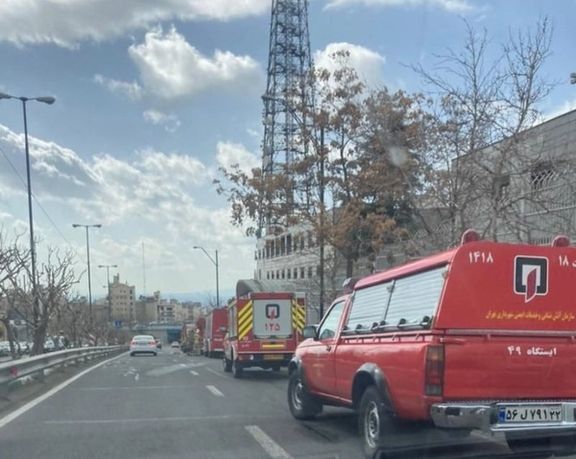
Internet services on mobile phones and landlines were disrupted Friday morning in the Iranian capital Tehran and the nearby city of Karaj.

Internet services on mobile phones and landlines were disrupted Friday morning in the Iranian capital Tehran and the nearby city of Karaj.
According to reports on social meida, many websites are not available via all internet service providers (ISPs) of the country. Most news websites are not even available from abroad.
Unconfirmed reports in social media say the reason is a fire at the Telecommunication Infrastructure Company.
Some social media users who are not living in Tehran or Karaj also say their internet is down.
The public relations manager of the Ministry of Communications and Information Technology, Mehdi Salem, told IRNA that the disruption was caused by a problem in one of the data centers (LCT) in Tehran. He did not say what the nature of the problem was.
He added the problem was resolved after about an hour, but despite this statement service remained largely unavailable.
On Thursday, a report by the Iran’s state-run news agency IRNA said the internet penetration rate has surpassed 122 percent in the country.
The government blocks thousands of websites and top social media apps in abid to control the flow of information.
Iranians were outraged last week when a group of 18 hardliners in a parliament committee claimed that they had ratified a bill to further restrict internet and social media access.
Some people reacted to the disruption by blaming the authorities, saying the outage was a trial run for the plan to restrict internet and social media, which hardliners are pushing for.
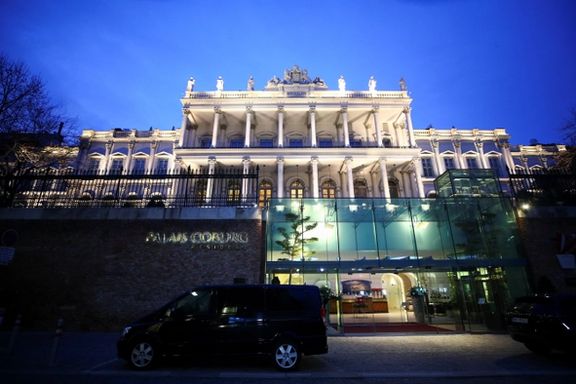
While negotiators in Vienna discuss the final details of a nuclear agreement, politicians and pundits in Tehran are still not sure whether there will be a deal.
An ultraconservative lawmaker even insisted on Thursday that Iranian negotiators should leave Vienna at once as he believes there is nothing to be gained in the talks.
International relations expert Ali Bigdeli told Didban Iran website in Tehran that if there is no agreement between Iran and world powers, the rate of exchange for the US dollar will rise to 400,000 rials as opposed to the current rate of around 260,000 rials in less than a week.
The analyst added that if negotiators fail to reach an agreement, Iran's case might be sent to the UN Security council, where more sanctions are likely to be imposed on Tehran even if Russia and China back the Islamic Republic.
Bigdeli said that concern over the implications of not reaching an agreement on Iran's already ailing economy could lead to growing concerns about the eruption of riots in Iran.
He sounded almost certain that the negotiations in Vienna are doomed to fail. He said Iran's support of Russia has affected the fate of the nuclear talks and it looks like the talks are ending in a deadlock as Iran's demands from the West are not rooted in reality.
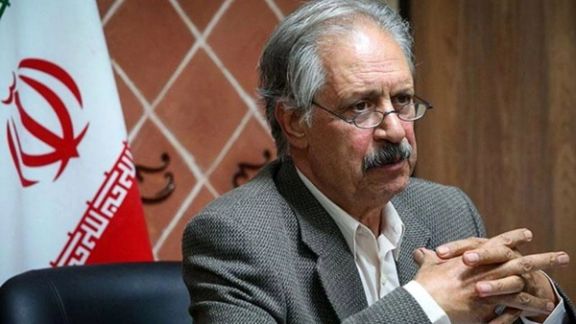
Bigdeli went on to say that in the new Iranian year which starts in late March, prices will rise even further, and without an agreement, Iran's international isolation as a result of its support for Russia will lead to an unprecedented level of public dissatisfaction which will end in major riots.
Meanwhile, former lawmaker Mansour Haghighatpour told reporters in Tehran that those who are against a nuclear deal with the United States are no more than 20 lawmakers in the Iranian parliament and they cannot decide for the entire nation and impose their hardliner views.
He criticized hardliner lawmakers who say Iran should not make an agreement with the United States, adding that it is Supreme Leader Ali Khamenei who makes the final decision about steering the negotiations.
In another development, firebrand member of parliament Mahmoud Nabavian, a staunch opponent of any deal with the West, particularly with the United States, told reporters in Tehran that Iran's problems have nothing to do with the sanctions and insisted that Iranian negotiators should leave Vienna at once.
Nabavian, a member of the ultraconservative Paydari Party, boasted that in spite of sanctions Iran has had a lot of progress particularly in the area of developing military hardware. He added that creating relative welfare for the nation is feasible regardless of the economic pressures, only if the government has the right roadmap.
This has been a constant argument of hardliners, while many former officials and economists keep saying that the country would be doomed if sanctions continue.
He said the conditions set for Iran by the other side is unfair and will cause losses for Tehran. He said while 980 Iranians are sanctioned by the United States, Washington is prepared to lift the sanction on only 20 individuals.
Nonetheless, he claimed that sanctions affect only 20 percent of Iran's economy, and the other 80 percent should be attributed to poor management.

Saudi Arabia plans to continue "detailed talks" with its rival Iran to reach a satisfactory agreement for both, Crown Prince Mohammed Bin Salman has said.
He also reiterated Riyadh’s view for a strong nuclear deal between Tehran and world powers at talks in Vienna, concerned about both Tehran’s nuclear ambitions and its regional aggression.
He said in remarks to The Atlantic carried by Saudi state media on Thursday that direct talks with Iran would enable reaching "a good situation and mark a bright future" for the region's Sunni Muslim and Shi'ite powers, which have been locked in a rivalry playing out in conflicts across the Middle East.
"Iran is a neighbor forever, we cannot get rid of them, and they cannot get rid of us," the Saudi state news agency cited him as saying.
Saudi Arabia supported former US president Donald Trump’s decision to withdraw from the Obama-era nuclear agreement known as JCPOA and favored his tough policy toward Tehran.
In September 2019 after Trump had fully sanctioned Iran’s oil exports, a large missile and drone attack hit Saudi oil installations in what was widely believed to have been an Iranian operation.
Riyadh had to navigate a delicate diplomatic terrain after Joe Biden became president with a clear agenda to restore the JCPOA and give less freedom of action to the kingdom. Biden removed a terror designation from Yemen’s Houthis early in his term.
Ben Salman’s comments come as indirect US-Iran talks in Vienna move closer to reviving a 2015 nuclear pact which curbed Tehran's nuclear program in exchange for sanctions relief.
Riyadh and its Gulf allies had seen the pact as flawed for not addressing their concerns over Iran's ballistic missiles program and network of proxies, including in Yemen where Saudi Arabia is embroiled in a costly war.
"We do not want to see a weak nuclear deal because the result will be the same in the end," the prince said.
Riyadh severed diplomatic ties with Tehran in 2016 after Iranian authorities allowed mobs to attack Saudi diplomatic mission, setting fire to its embassy. The two countries launched talks last year hosted by Iraq aimed at containing tensions, but no breakthrough was achieved.
Saudi Arabia's foreign minister said last month the kingdom was looking to schedule a fifth round of talks despite a "lack of substantive progress" so far and urged Tehran to change its behavior.
Shared concerns over Iran saw Riyadh's Gulf allies the United Arab Emirates and Bahrain forge ties with Israel in 2020 to create a new regional axis at a time of uncertainty over the commitment of key security ally the United States.
"We do not look at Israel as an enemy but as a potential ally in various interests that we could seek to achieve together. But it should solve its problems with the Palestinians," Prince Mohammed was cited as saying by the state news agency.
Saudi Arabia, home to Islam's two holiest sites, has conditioned any eventual normalization with Israel on addressing the Palestinians' quest for statehood on territory captured by Israel in the 1967 Middle East war.
With reporting by Reuters
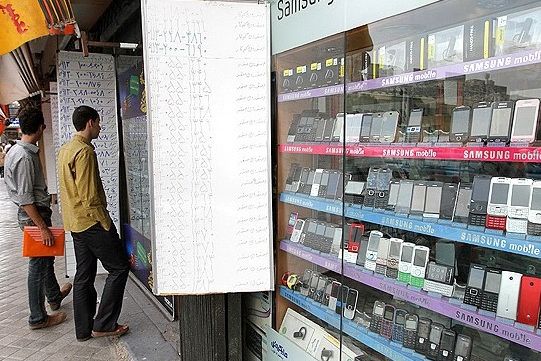
Despite widespread censorship, a report by the Iran’s state-run news agency IRNA says the internet penetration rate has surpassed 122 percent in the country.
The agency said on Thursday that according to the latest data, the penetration rate of fixed and mobile broadband has exceeded 122 percent in total, mentioning the Covid-19 pandemic as one of the reasons for the increase.
That use of fixed broadband internet is about 13 percent of total as most of the growth took place in the mobile internet.
The number of Iranian mobile subscriptions has reached nearly 136 million, meaning that the penetration rate of mobile phones is more than 161 percent.
Iran has widely blocked websites and social media apps in the past two decades to restrict citizens’ access to information, but people use VPNs and other tools to circumvent the censorship.
According to social media management platform Hootsuite, the number of Global Internet users has already reached almost 5 billion as of 2021.
Datareportal’s statistics indicate that internet penetration in Iran stood at 70 percent in January 2020, while there were 58.42 million internet users. However, data by the World Bank said the use of the Internet by individuals was 84 percent in 2020.
Iranians were outraged last week when a group of 18 hardliners in a parliament committee claimed that they had ratified a bill to further restrict internet and social media access.
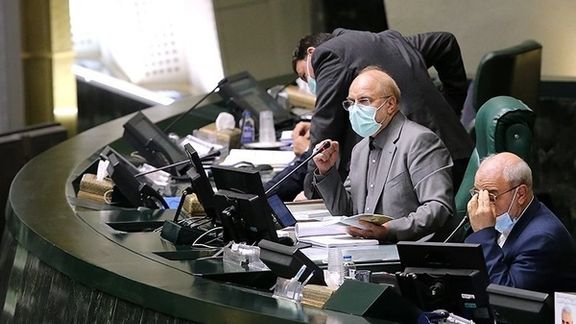
In a rare glitter of real journalism, news anchor Elmira Sharifi grilled a hardliner lawmaker for his attacks on those who oppose restrictions on social media.
Mehrdad Veis Karami, one of the 18 members of the Iranian parliament (Majles) who support a highly controversial bill to restrict social media access, called opponents "dogs on long leashes." The group of 18 hardliners last week claimed that they had ratified the bill in a committee and that there was no need to put the bill to vote by all the 290 lawmakers.
Later 167 Iranian members of parliament objected to the unlawful act and subsequently the parliament officially annulled the result of the voting. The bill is to be put to vote at the Majles later.
In the meantime, Karami started a campaign on social media against the opponents of the restrictive bill who in fact supported freedom of expression on social media. When critics lashed out at him, he said the "long leash" comment was a quote from a statement made by a former CIA chief. Iranian social media users quickly responded to remind him that no former or current CIA chief had made any such comment and suggested that the hardliner lawmaker do a google search before attributing fake statements to anyone.
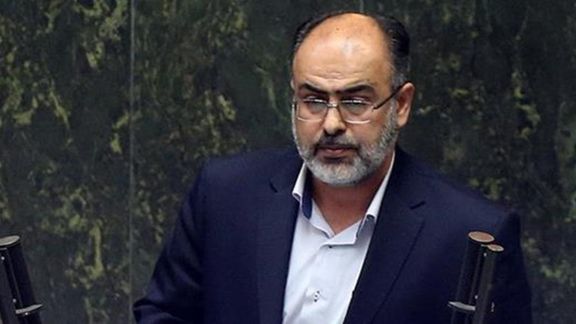
In a telephone conversation with Karami on live TV, Ms. Elmira Sharifi questioned Karami's presence on Twitter, which is officially banned in Iran, leaving the hardliner speechless. She further told him that he has insulted millions of opponents of the restrictive bill. The lawmaker slightly changed his complacent tone and said that he was not talking about the nation and that he was criticizing the opponents of the bill at the Majles. But the news anchor did not take that either and accused Karami of insulting nearly 200 of his colleagues at the Majles.
Although Iran's state TV is strictly controlled by the government, still anchors at times criticize some parliament bills before they are approved and become laws. Nonetheless, not every news anchor is brave enough to challenge even low-key politicians such as most members of parliament.
On the other hand, grilling Karami appeared absolutely legitimate, considering that even some clerics had lashed out at him for the controversial comment and his support for a legislation that would restrict people's freedoms and hurt millions who use Western apps, such as Instagram for commerce. In a video posted on Twitter, Iranian cleric Vahid Heroabadi returned the insult to Karami.
Numerous Iranians on social media lashed out at Karami and he had to take back his comment in a series of tweets. Some of the comments about Karami's insulting tweets were made by hardliner users and supporters of the government. As an example, Farid Modarresi said Karami was a mad dog who attacked the people and accused him of making the people angry by spreading irrational statement.
Nonetheless, most of Karami's critics called on him to leave social media platforms that are officially banned in Iran because of restrictions he and his likeminded colleagues have imposed.Thousands of small businesses operate from social media platforms and many Iranians, including the children use social media to voice their ideas or to vent their frustration
Over 220 of Iran's 290 predominantly hardliner lawmakers have their own Twitter accounts and use them for messaging as they are not important enough to be quoted on traditional media outlets.

Turkish prosecutors seek a 30-year prison sentence for 11 defendants, including at least one Iranian, charged over an alleged scheme to abduct Mehrdad Abdarbashi, an Iranian military pilot who fled to Turkey rather than serve in Syria.
Turkey's official news agency Anadolu (Anatolia) reported Wednesday that the 30-year term was demanded by the Prosecutor General's Office of Van province. The agency alleged Iranian intelligence had set up a $30,000 network in Van that had attempted three times to take Abdarbashi back to Iran. Anadolu earlier reported that the National Intelligence Organization (MIT) and police had arrested eight people, including an Iranian, in Van, south-east Turkey, September 24.
Speaking to Türkiye newspaper, Abdarbashi, a major and air-force helicopter pilot, said he had fled Iran and sought asylum after refusing to go to Syria. He told the newspaper a female Iranian intelligence agent had invited him to a house. He alerted Turkish authorities, and after she drugged him and others were preparing to abduct him, Turkish agents swooped.
In 2019 a ‘honey-trap’ was allegedly used to lure Ruhollah Zam, who ran a social-media channel on Telegram, to Iraq where he was abducted. Zam was executed in December 2020 after confessions aired on state television.
In February, Turkey arrested eight in an alleged Iranian plot to assassinate Israeli-Turkish businessman Yair Geller in revenge for the killing of nuclear scientist Mohsen Fakhrizadeh in 2020.